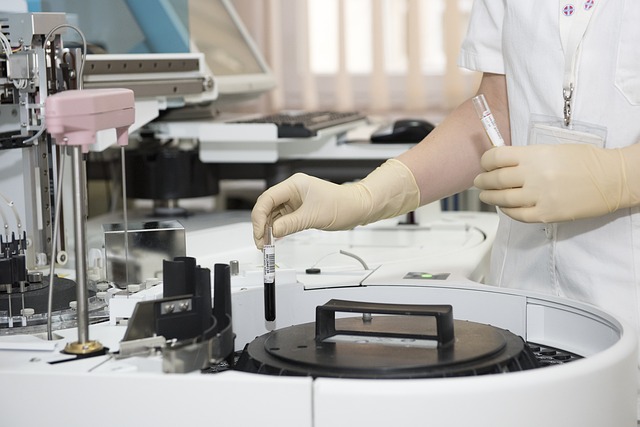The cost of stem cells is a hot topic in the medical industry. With advances in technology, the cost of such cells is decreasing while the quality of treatment is increasing. This has led to more people seeking out treatment with stem cells.
This blog post will discuss the cost of these cells and how it varies by country. We will also talk about the advanced technology that makes the cost of treatments more affordable for everyone!
What are stem cells and what’s their working?
Stem cells are important for the body because they can become any other type of cell. This means that stem cells can be used to replace damaged tissue or organs. Stem cell research is ongoing, and scientists are hopeful that someday they will be used to treat various diseases.
If you want to learn more about stem cells, many resources are available online. Also, consider donating to stem cell research so scientists can continue their work in this promising area.
How much does it cost to get stem cell treatments?
Stem cell therapy is a new and exciting treatment option that has the potential to change lives. However, it’s important to understand the cost of treatments before making any decisions.
The average cost of stem cell therapy is around $5,000, but it can vary depending on the type of treatment and the severity of the condition being treated. While stem cell therapy is still in its early stages, there are already many success stories of people whose lives have been changed by this treatment.
If you’re considering stem cell therapy, be sure to do your research and consider all your options before making a decision.
What are some of the risks associated with stem cell treatments
Despite the many benefits of stem cell therapies, there are still some risks associated with these treatments. One of the biggest risks is that the cells could go to places they’re not supposed to and start growing uncontrollably, which could lead to tumors.
There’s also a risk that patients could have an allergic reaction to the stem cells or the substances used to preserve them. Finally, there’s always a possibility that something could go wrong during the procedure, resulting in pain, bleeding, or infection.
Even though some risks are involved with stem cell treatments, researchers believe that the potential benefits outweigh these concerns. If you’re considering a stem cell treatment, talk to your doctor about the possible risks and side effects before deciding.

Are there any long-term side effects from stem cell Cure
Stem cell treatments becoming more and more viable, so it’s important to consider the long-term side effects of this type of therapy. As with any medical intervention, potential long-term risks should be monitored long after the treatment is completed.
Fortunately, researchers have not identified any long-term side effects from stem cell treatments, suggesting that the long-term prognosis is good for those receiving this therapy. Further research into the safety and efficacy of stem cell therapies will help ensure their long-term success as a viable medical treatment.
How likely is it that you will experience any benefits from stem cell treatments
It is difficult to predict how likely it is for any particular person to experience benefit from a specific stem cell treatment, as the field is still relatively new. Best stem cell treatments are emerging quickly with new technology advancements, and they are largely considered safe and effective.
However, some risks can be associated depending on the type of treatment involved. When considering stem cell treatment, it is important to understand that individual results can vary greatly and that the potential benefits will depend entirely on the health state, medical condition, and type of procedure chosen by your doctor.
Best stem cell treatments using modern technology have been known to have positive effects on diseases such as cancer, heart disease, diabetes, and even arthritis – but these types of treatments should be carefully discussed with a qualified healthcare provider before starting the process.
Any government or private health insurance programs that cover the cost of stem cell treatments
While stem cell treatments are not currently covered by the government or most private health insurance programs, this may change as more and more research is conducted on the efficacy of these treatments. In the meantime, there are several ways to finance your treatment if you decide to pursue it.
Some clinics offer financing options, and many organizations provide financial assistance to patients pursuing stem cell therapies.

The pros and cons of using embryonic stem cells versus adult stem cells
Embryonic stem cells have tremendous potential for medical treatments because of their Malleability since they can be developed into any cell type in the body, unlike adult stem cells, which are more limited in their differentiation capabilities.
However, there are ethical concerns when using embryonic stem cells, such as obtaining them from embryonic tissue, which can be seen as unethical or immoral. Adult Stem Cells do not suffer from this ethical concern since they can be derived from the patient through techniques such as liposuction, leaving no harm to an embryo or person.
Ultimately, a pros and cons list should weigh out these values – morality on one side and efficacy on the other – to determine what procedure is best for any particular instance.
Summary
Stem cells can become any other type of cell in the body, which is why they are so important. However, stem cell treatments are not without their risks. Potential risks include infection, cancerous growth, and long-term side effects.
The cost of stem cell treatment is also a consideration since most insurance plans do not cover it. Before deciding whether or not to undergo stem cell treatment, be sure to speak with your doctor and make an informed decision.
